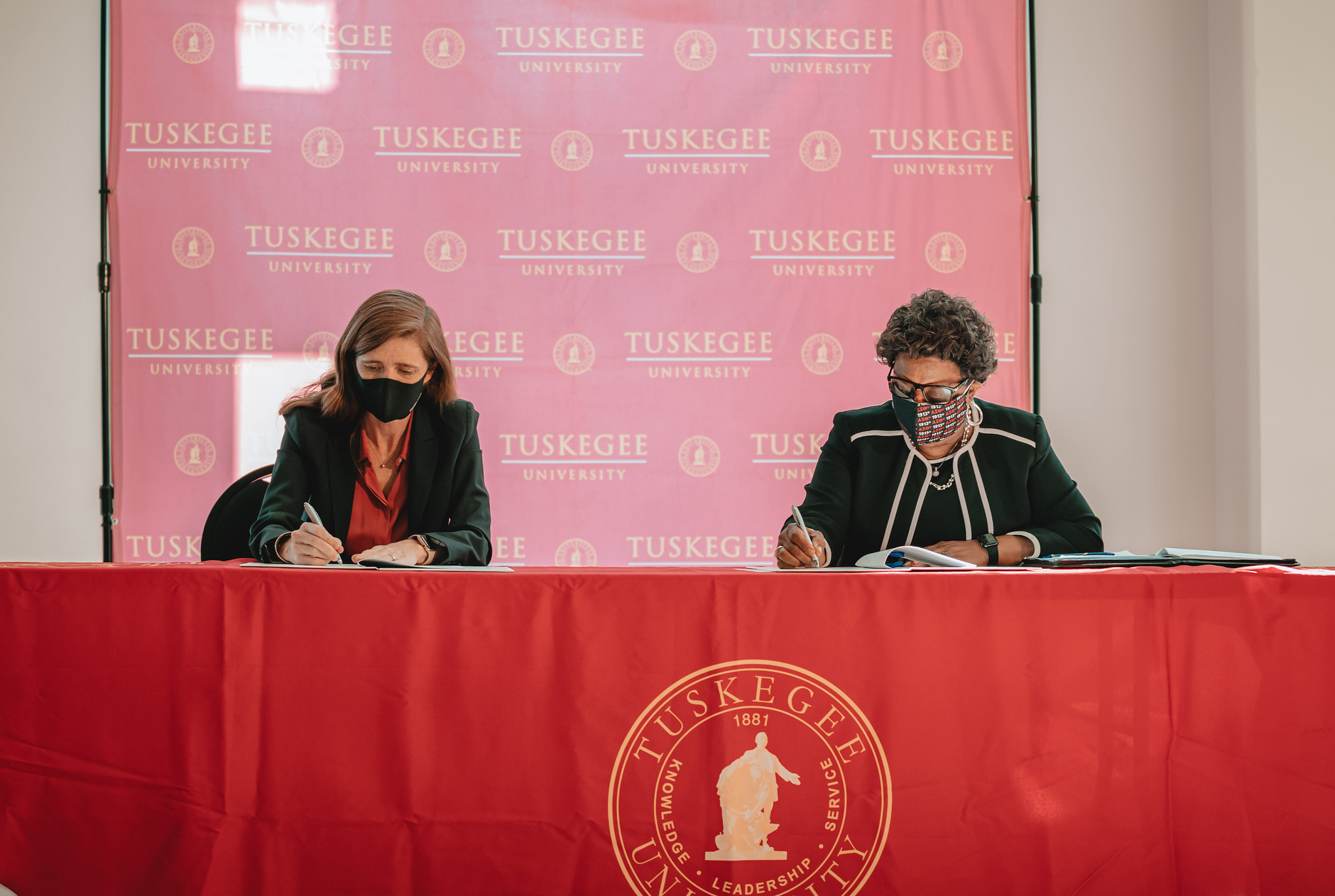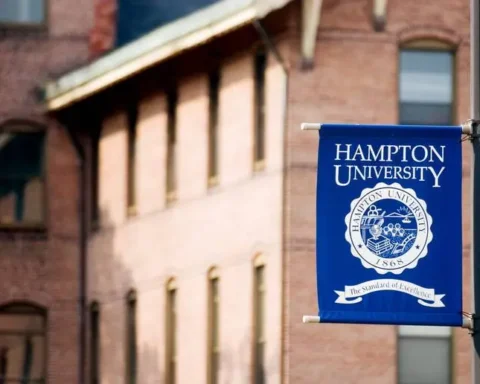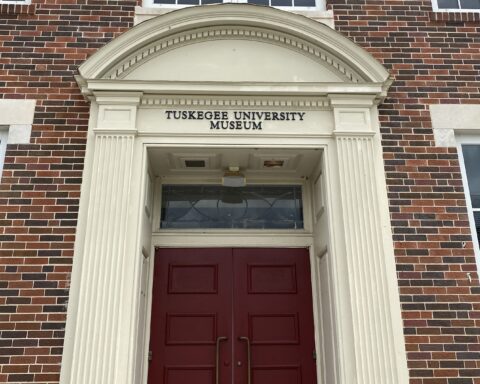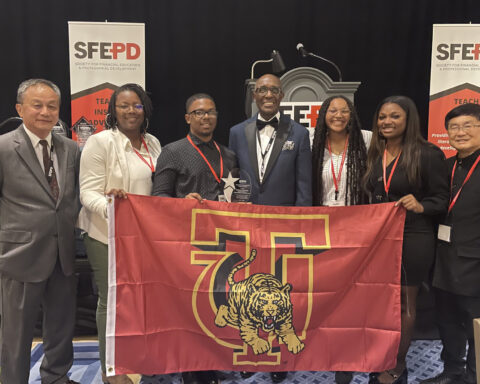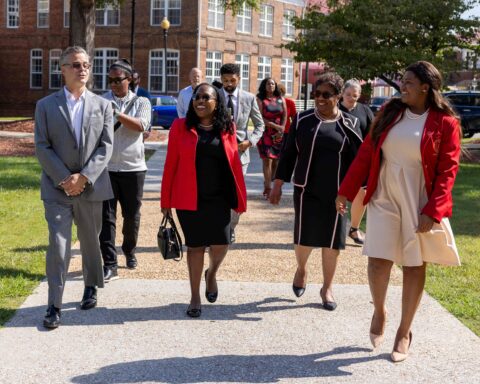By Kawana McGough
Yesterday, Tuskegee University President Dr. Charlotte P. Morris and USAID Administrator Samantha Power signed a Memorandum of Understanding (MOU) to promote diversity, equity, and inclusion in the international development workforce. USAID and Tuskegee University are committed to working together to shape research, technology, resilience, nutrition, and water security across the development space.
“We are excited about this historic partnership. This initiative with USAID provides the opportunity to highlight our exceptional students – and give them a seat at the table and the opportunity to showcase their talents,” said President Charlotte P. Morris. “Our partnership with USAID leverages our long history of stellar research in agriculture, nutrition, and water resource management. We know that this agreement will be beneficial for a number of our stakeholders, particularly for our students and faculty.”
Under the Minority-Serving Institutions Partnership Initiative, USAID has expanded its partnerships to align with the new Global Food Security Strategy and the diversity and equity priorities of the Biden-Harris Administration. In support of the U.S. government’s Feed the Future initiative to end hunger, Tuskegee University and USAID will partner domestically and internationally in the areas of food safety and security, farming and extension, animal health and pathology, and human health and welfare.
Tuskegee’s expertise will be utilized to create programming, facilitate training, participate in exchanges, and share best practices. USAID will also share information about paid internships, jobs, and research opportunities for all students, graduates, and faculty at Tuskegee University.
This MOU signing is part of USAID’s commitment to developing a more robust workforce that is diverse, inclusive, and equitable. The Agency has also boosted the budget for paid internships by nearly 700 percent to bring in more candidates from underrepresented communities.

